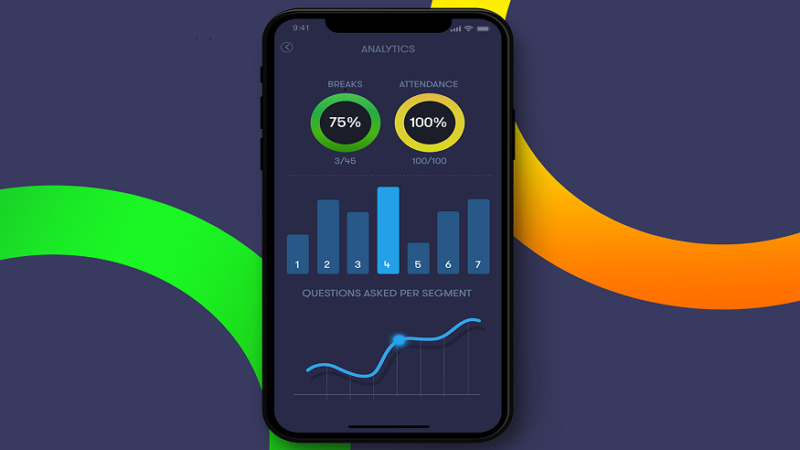Digital transformation has been at the heart of companies’ economic challenges for several years and continues to intensify as things evolve so quickly. In this context which affects all organizations, VSEs, SMEs, major accounts, private or public… the mistake would be to see this digital transformation only through the technological prism : it is not enough to be present on social networks or even to having integrated a CRM to shout loud and clear that you have succeeded in your digital transformation!
A successful digital transformation requires above all a strategy phase , and contrary to popular belief, you don’t need to be a multinational to talk about “strategy”.
Some clarifications are necessary… Let’s first return to the concept of “digital strategy”: what are we talking about when we talk about strategy, what objectives can a digital strategy meet, how to deploy it, for what purposes? benefits and how to measure these results… so many questions that we will answer in this article.
Digital strategy: what are we talking about?
Implementing a digital strategy means mobilizing digital tools and integrating them into the organization to serve the company’s strategy.
This strategy can take several forms: overhaul its marketing model by integrating a new digital solution (e-commerce website, etc.), deploy an omnichannel CRM solution, define a presence strategy on social networks, etc.
The very essence of a digital strategy is to fully integrate digital across the company.
Creating your Facebook page or partially redesigning your website is therefore not a digital strategy strictly speaking: the approach only makes sense if you have first asked yourself the question of the objectives to which this page or site must meet , the resources allocated to run them on a daily basis, performance indicators and how this page or site fits into the company strategy.
Objectives and challenges of a digital strategy
The nerve of the war, the marketing strategy will be the basis of the company’s growth ! However, with the explosion of the Internet and the growing place of digital channels in the customer journey, it is now unthinkable to consider digital as an element external to marketing strategy.
A true component of the company’s marketing strategy, digital must be a means of meeting clearly identified objectives: increasing the company’s notoriety, gaining market share, improving profitability, promoting customer experience and loyalty…
We will then identify the digital means to meet these objectives. To develop the visibility of a company or a brand, we can, for example, design a website, build a strategy on social networks and set up acquisition campaigns using digital levers such as Google Ads, Facebook Ads. … or even work on your SEO (discover our article dedicated to good SEO practices ).It is all of these objectives and the means mobilized to achieve them which constitute the basis of the strategic approach.
The major challenge for the company then lies in its ability to gradually and fully integrate digital into its business strategy: mastering it so as not to suffer, considering digital
What steps to build your digital strategy?
This involves adopting a method quite similar to that which could be chosen to define a marketing strategy:
Thinking digital means thinking about sharing and collaboration, it means accepting that the company becomes what consumers make of it, say about it and expect of it. It also means getting out of your comfort zone, learning new codes and shaking up your certainties. The approach goes beyond the limited framework of the marketing team.
Synonymous with openness and transparency, this new vision must therefore be instilled by management and can be passed down calmly to the teams in charge of implementing the digital strategy but also to the entire organization. Management must also be able to rely on sponsors within the teams who will encourage the adoption of this vision among other employees.
This change in posture therefore fully affects HR, which will intervene not only on the question of skills around digital transformation but also on corporate culture and will have to support this change with less mature employees who may show some reluctance (fear of ‘exhibition, porosity between professional and private life…).
The questions of integration or outsourcing of skills will then arise (Should we recruit? On which profiles? Who should digital be attached to in the organization? …) but also training. (To find out more about our digital training offer ).
In digital, there are no givens: tools evolve quickly according to technological innovations and consumer uses follow this same trend. To deal with this, there is therefore no point in sending your teams to continuing training for 6 months; by the time they leave, their knowledge could already be obsolete. It is better to have short but regular sessions to stay on constant alert.
Often neglected or minimized, the measurement and analysis phase is essential : it not only validates past decisions, but also prepares for the future by providing a benchmark for steering future actions.
As with any strategy, the effects of a deployed digital strategy must be measured very clearly. In this way, the digital channel offers not only numerous measurement tools but also numerous possibilities in terms of analysis . Digital is therefore an element whose ROI can easily be calculated.
It will be necessary to identify the KPIs to follow, these depend directly on the initial objectives set. To measure the visibility and notoriety of a company, the site’s audience will for example be one indicator, the number of impressions on its social networks will be another, etc. We can also study the impact of online sales on sales generated by other channels or even the repurchase rate to assess loyalty…










